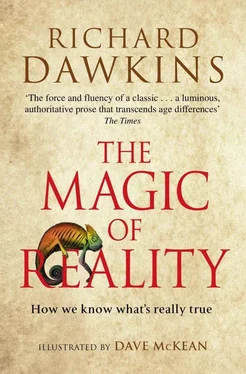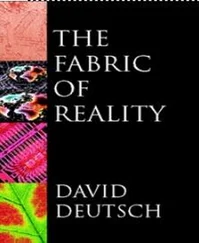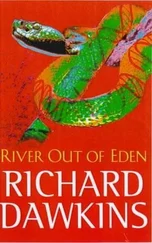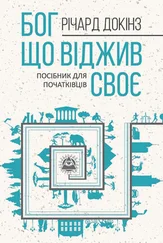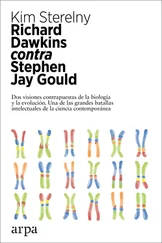Princes don’t turn into frogs, and pumpkins don’t turn into coaches, because frogs and coaches are complicated things whose bits could have been combined into an almost infinite number of heaps of junk. And yet we know, as a fact, that every living thing – every human, every crocodile, every blackbird, every tree and even every Brussels sprout – has evolved from other, originally simpler forms. So isn’t that just a process of luck, or a kind of magic? No! Absolutely not! This is a very common misunderstanding, so I want to explain right now why what we see in real life is not the result of chance or luck or anything remotely ‘magical’ at all (except, of course, in the strictly poetic sense of something that fills us with awe and delight).
The slow magic of evolution
To turn one complex organism into another complex organism in a single step – as in a fairytale – would indeed be beyond the realms of realistic possibility. And yet complex organisms do exist. So how did they arise? How, in reality, did complicated things like frogs and lions, baboons and banyan trees, princes and pumpkins, you and me come into existence?
For most of history that was a baffling question, which no one could answer properly. People therefore invented stories to try to explain it. But then the question was answered – and answered brilliantly – in the nineteenth century, by one of the greatest scientists who ever lived, Charles Darwin. I’ll use the rest of this chapter to explain his answer, briefly, and in different words from Darwin’s own.
The answer is that complex organisms – like humans, crocodiles and Brussels sprouts – did not come about suddenly, in one fell swoop, but gradually, step by tiny step, so that what was there after each step was only a little bit different from what was already there before. Imagine you wanted to create a frog with long legs. You could give yourself a good start by beginning with something that was already a bit like what you wanted to achieve: a frog with short legs, say. You would look over your short-legged frogs and measure their legs. You’d pick a few males and a few females that had slightly longer legs than most, and you’d let them mate together, while preventing their shorter-legged friends from mating at all.
The longer-legged males and females would make tadpoles together, and these would eventually grow legs and become frogs. Then you’d measure this new generation of frogs, and once again pick out those males and females that had longer-than-average legs, and put them together to mate.
After doing this for about 10 generations, you might start to notice something interesting. The average leg length of your population of frogs would now be noticeably longer than the average leg length of the starting population. You might even find that all the frogs of the 10th generation had longer legs than any of the frogs of the first generation. Or 10 generations might not be enough to achieve this: you might need to go on for 20 generations or even more. But eventually you could proudly say, ‘I have made a new kind of frog with longer legs than the old type.’
No wand was needed. No magic of any kind was required. What we have here is the process called selective breeding . It makes use of the fact that frogs vary among themselves and those variations tend to be inherited – that is, passed on from parent to child via the genes. Simply by choosing which frogs breed and which do not, we can make a new kind of frog.
Simple, isn’t it?
But just making legs longer is not very impressive. After all, we started with frogs – they were just short-legged frogs. Suppose you started, not with a shorter-legged form of frog, but with something that wasn’t a frog at all, say something more like a newt. Newts have very short legs compared with frogs’ legs (compared with frogs’ hind legs, at least), and they use them not for jumping but for walking. Newts also have long tails, whereas frogs don’t have tails at all, and newts are altogether longer and narrower than most frogs. But you can see that, given enough thousands of generations, you could change a population of newts into a population of frogs, simply by patiently choosing, in each of those millions of generations, male and female newts that were slightly more frog-like and letting them mate together, while preventing their less frog-like friends from doing so. At no stage during the process would you see any dramatic change. Every generation would look pretty much like the previous generation, but nevertheless, once enough generations had gone by, you’d start to notice that the average tail length was slightly shorter and the average pair of hind legs was slightly longer. After a very large number of generations, the longer-legged, shorter-tailed individuals might find it easier to start using their long legs for hopping instead of crawling. And so on.
Of course, in the scenario I have just described, we are imagining ourselves as breeders, picking out those males and females that we want to mate together in order to achieve an end result that we have chosen. Farmers have been applying this technique for thousands of years, to produce cattle and crops that have higher yields or are more resistant to disease, and so on. Darwin was the first person to understand that it works even when there is no breeder to do the choosing . Darwin saw that the whole thing would happen naturally , as a matter of course, for the simple reason that some individuals survive long enough to breed and others don’t; and those that survive do so because they are better equipped than others. So the survivors’ children inherit the genes that helped their parents to survive. Whether it’s newts or frogs, hedgehogs or dandelions, there will always be some individuals that are better at surviving than others. If long legs happen to be helpful (for frogs or grasshoppers jumping out of danger, say, or for cheetahs hunting gazelles or gazelles fleeing from cheetahs), the individuals with longer legs will be less likely to die. They will be more likely to live long enough to reproduce. Also, more of the individuals available for mating with will have long legs. So in every generation there will be a greater chance of the genes for longer legs being passed into the next generation. Over time we will find that more and more of the individuals within that population have the genes for longer legs. So the effect will be exactly the same as if an intelligent designer, such as a human breeder, had chosen long-legged individuals for breeding – except that no such designer is required : it all happens naturally, all by itself, as the automatic consequence of which individuals survive long enough to reproduce, and which don’t. For this reason, the process is called natural selection .
Given enough generations, ancestors that look like newts can change into descendants that look like frogs. Given even more generations, ancestors that look like fish can change into descendants that look like monkeys. Given yet more generations, ancestors that look like bacteria can change into descendants that look like humans. And this is exactly what happened. This is the kind of thing that happened in the history of every animal and plant that has ever lived. The number of generations required is larger than you or I can possibly imagine, but the world is thousands of millions of years old, and we know from fossils that life got started more than three and a half billion years ago, so there has been plenty of time for evolution to happen.
This is Darwin’s great idea, and it is called Evolution by Natural Selection. It is one of the most important ideas ever to occur to a human mind. It explains everything we know about life on Earth. Because it is so important, I’ll come back to it in later chapters. For now, it is enough to understand that evolution is very slow and gradual. In fact, it is the gradualness of evolution that allows it to make complicated things like frogs and princes. The magical changing of a frog into a prince would be not gradual but sudden, and this is what rules such things out of the world of reality. Evolution is a real explanation, which really works, and has real evidence to demonstrate the truth of it; anything that suggests that complicated life forms appeared suddenly, in one go (rather than evolving gradually step by step), is just a lazy story – no better than the fictional magic of a fairy godmother’s wand.
Читать дальше
